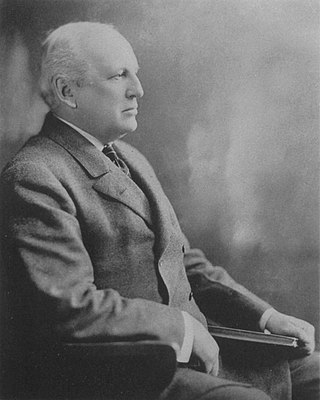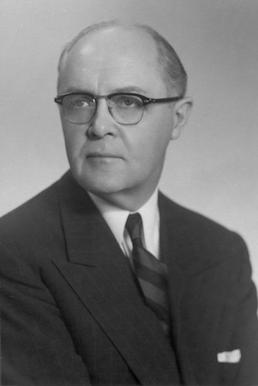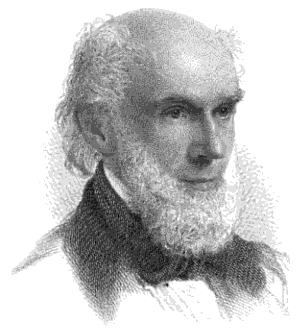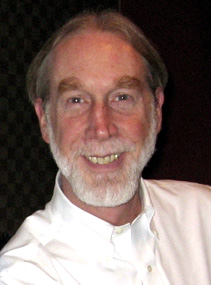
Garretson Beekman Trudeau is an American cartoonist, best known for creating the Doonesbury comic strip. Trudeau is also the creator and executive producer of the Amazon Studios political comedy series Alpha House.

Unitarian Universalism is a liberal religious movement characterized by a "free and responsible search for truth and meaning". Unitarian Universalists assert no creed, but instead are unified by their shared search for spiritual growth. Unitarian Universalists do not have an official, unified corpus of sacred texts but rather draw inspiration and guidance from the six sources: personal experience, prophetic utterances, world religions, Jewish and Christian teachings, humanist teachings, and spiritual teachings. Unitarian Universalist congregations include many atheists, agnostics, deists, and theists; there are churches, fellowships, congregations, and societies around the world.
Unitarianism is a Nontrinitarian branch of Christianity. Unitarian Christians affirm the unitary nature of God as the singular and unique creator of the universe, believe that Jesus Christ was inspired by God in his moral teachings and that he is the savior of humankind, but he is not equal to God himself.

William Ellery Channing was the foremost Unitarian preacher in the United States in the early nineteenth century and, along with Andrews Norton (1786–1853), one of Unitarianism's leading theologians. Channing was known for his articulate and impassioned sermons and public speeches, and as a prominent thinker in the liberal theology of the day. His religion and thought were among the chief influences on the New England Transcendentalists although he never countenanced their views, which he saw as extreme. His espousal of the developing philosophy and theology of Unitarianism was displayed especially in his "Baltimore Sermon" of May 5, 1819, given at the ordination of the theologian and educator Jared Sparks (1789–1866) as the first minister of the newly organized First Independent Church of Baltimore.

Theodore Parker was an American transcendentalist and reforming minister of the Unitarian church. A reformer and abolitionist, his words and popular quotations would later inspire speeches by Abraham Lincoln and Martin Luther King Jr.

Harvard Divinity School (HDS) is one of the constituent schools of Harvard University in Cambridge, Massachusetts. The school's mission is to educate its students either in the academic study of religion or for leadership roles in religion, government, and service. It also caters to students from other Harvard schools that are interested in the former field. HDS is among a small group of university-based, non-denominational divinity schools in the United States.
Liberal Christianity, also known as liberal theology and historically as Christian Modernism, is a movement that interprets Christian teaching by taking into consideration modern knowledge, science and ethics. It emphasizes the importance of reason and experience over doctrinal authority. Liberal Christians view their theology as an alternative to both atheistic rationalism and theologies based on traditional interpretations of external authority, such as the Bible or sacred tradition.

The Universalist Church of America (UCA) was originally a Christian Universalist religious denomination in the United States. Known from 1866 as the Universalist General Convention, the name was changed to the Universalist Church of America in 1942. In 1961, it consolidated with the American Unitarian Association to form the Unitarian Universalist Association.
The Meadville Lombard Theological School is a Unitarian Universalist seminary in Chicago, Illinois.

Samuel Atkins Eliot II was an American Unitarian minister. In 1898 the American Unitarian Association elected him secretary but in 1900 the position was redesignated as president and Eliot served in that office from inception to 1927, significantly expanding the association's activities and consolidating denominational power in its administration.

James Luther Adams (1901–1994), an American professor at Harvard Divinity School, Andover Newton Theological School, and Meadville Lombard Theological School, and a Unitarian parish minister, was the most influential theologian among American Unitarian Universalists in the 20th century.
Andover Newton Theological School (ANTS) was a graduate school and seminary in Newton, Massachusetts, affiliated with the American Baptist Churches USA and the United Church of Christ. It was the product of a merger between Andover Theological Seminary and Newton Theological Institution. In recent years, it was an official open and affirming seminary, meaning that it was open to students of same-sex attraction or transgender orientation and generally advocated for tolerance of it in church and society.
Christian universalism is a school of Christian theology focused around the doctrine of universal reconciliation – the view that all human beings will ultimately be saved and restored to a right relationship with God. "Christian universalism" and "the belief or hope in the universal reconciliation through Christ" can be understood as synonyms. Opponents of this school, who hold that eternal damnation is the ultimate fate of some or most people, are sometimes called "infernalists."
Arthur Powell Davies was the minister of All Souls Church, Unitarian in Washington, D.C. from 1944 until his death in 1957. A prolific author of theological books and sermon collections, he came to national prominence in the U.S. through his liberal activism advocating civil rights for African-Americans and women and ethical stands against post-war nuclear proliferation and the methods employed by the American government during the era of McCarthyism.

All Souls Unitarian Church is a Unitarian Universalist (UU) church in Tulsa, Oklahoma. It is one of the largest UU congregations in the world.

Ezra Stiles Gannett was a Unitarian minister in Boston, Massachusetts.

The Hollis Chair of Divinity is an endowed chair at Harvard Divinity School. It was established in 1721 by Thomas Hollis, a wealthy English merchant and benefactor of the university, at a salary of £80 per year. It is the oldest endowed chair in the United States, the first professorship in theology in the country, and in the early 19th century it was considered to be "the most prestigious endowed professorship in America".
Spencer Lavan was an American scholar of comparative religion and a Unitarian Universalist minister. Since his ordination in 1962, Spencer Lavan served as a Unitarian Universalist minister mostly by teaching in higher education. He taught "Religions of Islam and India" and was a dean to undergraduates at Tufts University (1969–79). He organized and chaired the Department of Medical Humanities at the University of New England College of Osteopathic Medicine in Maine (1982–88). Finally, he served as the Dean and Chief Executive of the Meadville Lombard Theological School at the University of Chicago (1988–96). From 1984-88 he was editor of the Journal of Medical Humanities and Bio-Ethics. He served as a co-editor for the Dictionary of Unitarian Universalist Biography. Lavan was the author of several books on religious subjects, served as the president of the Unitarian Universalist Historical Society, and founded the Collegium: Liberal Religious Studies.

Church of Our Father was the first Unitarian church established in Atlanta, Georgia. The church was organized on March 27, 1883, by Rev. George Leonard Chaney, a Boston minister. Rev. Chaney initially held Sunday services in the Senate Chamber, Concordia Hall and the United States Courtroom. A church building was constructed at the corner of North Forsyth and Church Street and dedicated on April 23, 1884. The original building was demolished in 1900.













